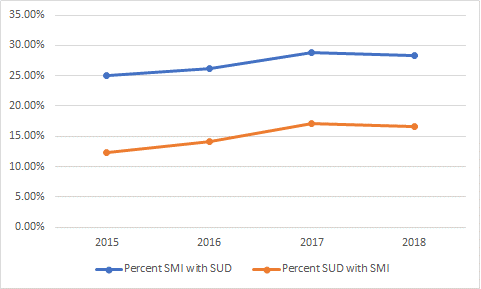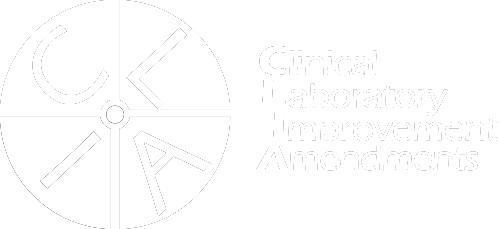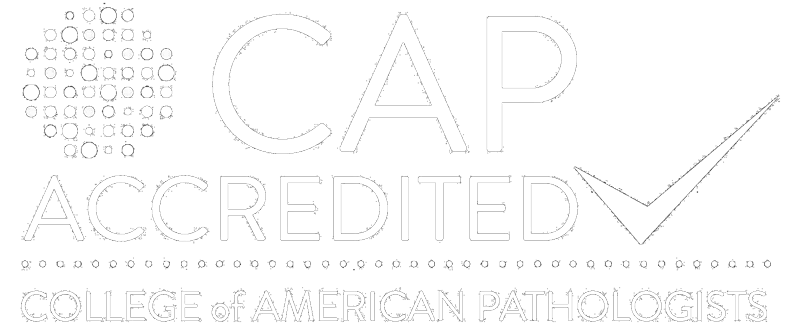Court and probation professionals face countless challenges in helping justice-involved individuals get the help they need. In many cases, these challenges are intertwined.
Take Substance Use Disorder (SUD) and mental health, for example.
According to the National Institute on Drug Abuse (NIDA) ‘s Common Comorbidities with Substance Use Disorders Research Report, many individuals who develop substance use disorders are also diagnosed with mental disorders and vice versa. And, the report notes, “multiple national surveys have found that about half of those with mental illness during their lives will also experience SUD.”
This combination makes the road to recovery far rockier. And it’s gotten worse during the pandemic, putting even more strain on court and probation professionals.
This blog will look at the connection between SUD and mental health, highlight some treatment options, and provide a few resources to help your clients.
SUD and Mental Health
The coexistence of mental health and substance use disorders is known as co-occurring disorders.
According to the National Institute on Drug Abuse report, SUD is common in anxiety disorders such as panic disorder and post-traumatic stress disorder. Substance-use disorders also co-occur with mental disorders such as depression and bipolar disorder, attention-deficit hyperactivity disorder (ADHD), psychotic illness, borderline personality disorder, and antisocial personality disorder.
The chart below shows the overlap with serious mental illness (SMI), such as major depression, schizophrenia, and bipolar disorder. Overall, one in four people with SMI also has SUD.

According to the Substance Use and Mental Health Services Administration, mental health problems and SUD often occur together because:
- Certain illegal drugs can cause people with an addiction to experience one or more symptoms of a mental health problem.
- Mental health problems can sometimes lead to alcohol or drug use, as some people with mental health problems may misuse substances as a form of self-medication.
- Mental and substance use disorders share underlying causes, including changes in brain composition, genetic vulnerabilities, and early exposure to stress or trauma.
According to the National Institute of Mental Health, SUDs and other mental disorders commonly co-occur, but it does not mean that one caused the other. Research suggests three possibilities that could explain why SUDs and other mental disorders may occur together:
- Common risk factors. SUDs and other mental disorders can run in families, suggesting that specific genes may be a risk factor. Environmental factors, such as stress or trauma, can cause genetic changes passed down through generations and may contribute to developing a mental disorder or a substance use disorder.
- Mental disorders can contribute to substance. Studies found that people with mental illnesses, such as anxiety, depression, or post-traumatic stress disorder (PTSD), may use drugs or alcohol as a form of self-medication. However, they may make the symptoms worse over time.
- Substance use and SUDs can contribute to the development of other mental disorders. Substance use may trigger brain structure and function changes, making a person more likely to develop a mental illness.
Diagnosis and Treatment
Someone with a mental health problem and substance use disorder must be treated for both issues, preferably together. Treatment for mental health problems and substance use disorders may include rehabilitation, medications, support groups, and talk therapy.
Examples of effective behavioral therapies for adults with SUDs and different co-occurring mental disorders include:
- Cognitive Behavioral Therapy (CBT): CBT is a type of talk therapy aimed at helping people learn how to cope with difficult situations by challenging irrational thoughts and changing behaviors.
- Dialectical Behavior Therapy (DBT): DBT teaches skills that can help control intense emotions, reduce self-destructive behaviors and improve relationships.
- Assertive Community Treatment (ACT): This is a form of community-based mental health care that emphasizes outreach to the community and an individualized treatment approach.
- Therapeutic Communities (TC): A long-term residential treatment that focuses on helping people develop new and healthier values, attitudes, and behaviors.
- Contingency Management (CM): CM principles encourage healthy behaviors by offering vouchers or rewards for desired behaviors.
Impact on Courts
The effects on courts and probation are apparent. The Centers for Disease Control and Prevention reports that Mental health symptoms have increased during the COVID-19 pandemic. From Sept. 29-Oct. 11, 2021, 31.6% of adults in the US reported symptoms of anxiety and/or depressive disorder, up from 11% in 2019.
According to the Council of State Governments Justice Center, people living with mental illness are overrepresented in the courts and in the incarcerated population. The rate of severe mental illness is four to six times higher in jail (14.5% of men and 31% of women in prisons) than in the general population, per the Vera Institute of Justice.
Meanwhile, substance use disorders are even more prevalent than serious mental illnesses in jails and prisons; 68% of people in custody in jails, 53% of people in custody in state prisons, and 46% of people in custody in federal prisons report symptoms consistent with SUD in the year before their incarceration, according to the Council of State Governments Justice Center.
The National Center for State Courts published a Behavioral Health Data Elements Interim Guide, which lays out the data elements needed to thoroughly understand and evaluate the courts’ processing of cases involving behavioral health issues.
To find help for your clients, the Substance Abuse and Mental Health Services Administration (SAMHSA) provides the Behavioral Health Treatment Services Locator for finding substance use and mental health treatment facilities and programs. SAMHSA also offers FindTreatment.gov for finding substance use disorder treatments and programs across the country.
You can also visit The National Institute for Mental Health’s Mental Health Information page about specific conditions and disorders and their symptoms.
Please contact us to learn more about how regular drug testing supports recovery.


